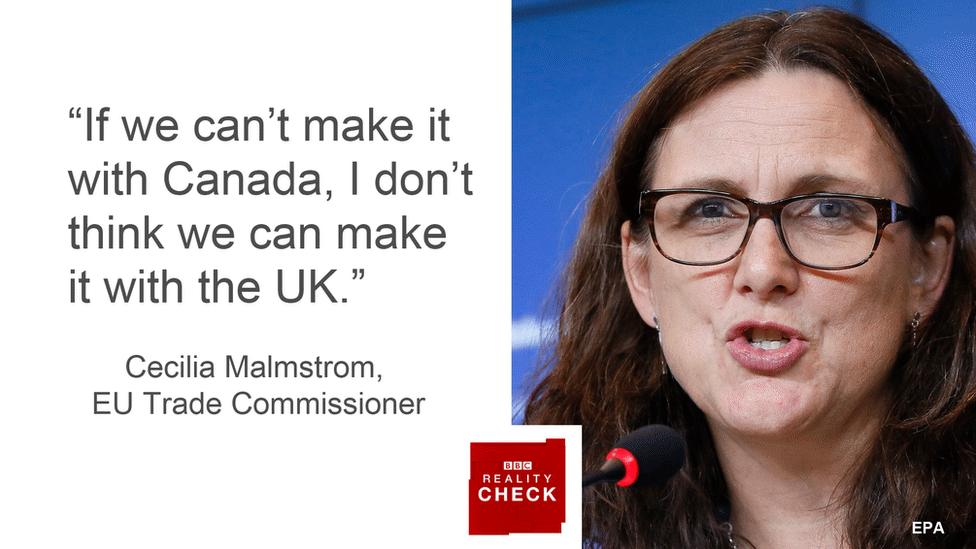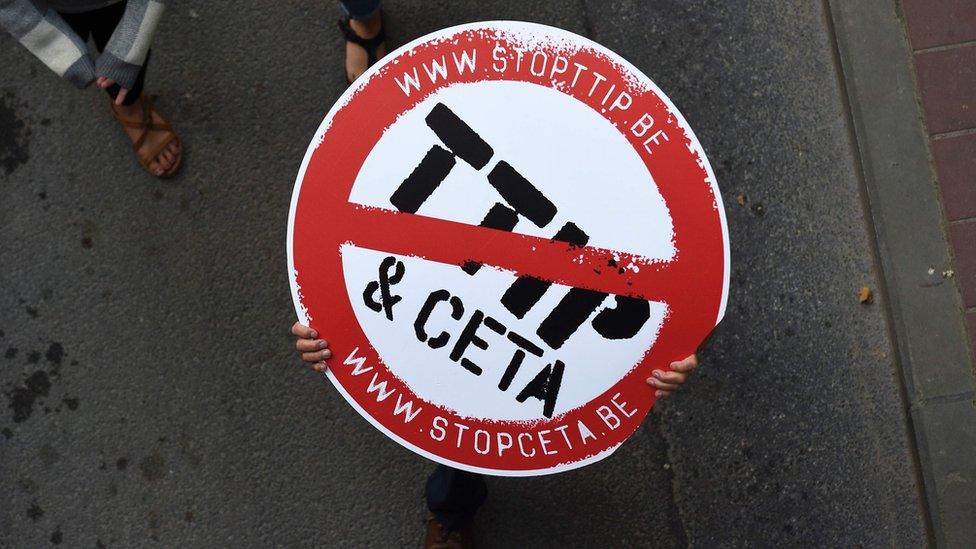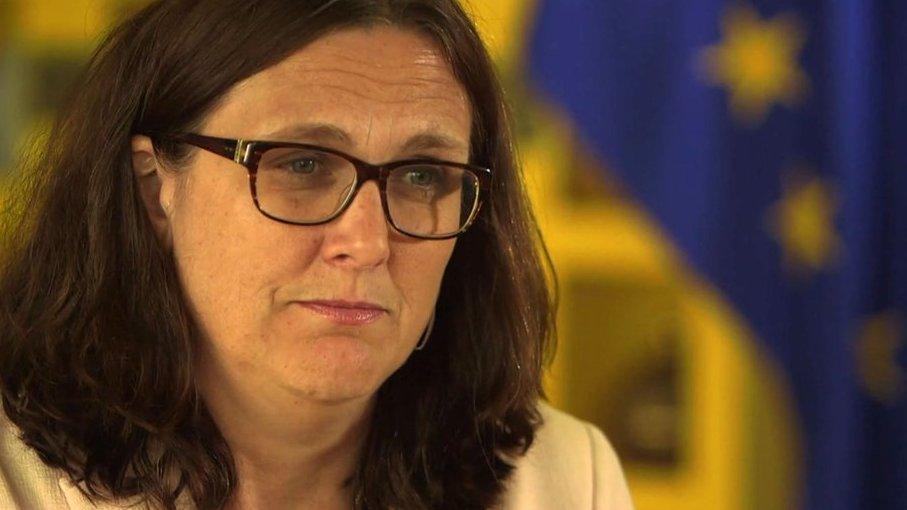Reality Check: Could Walloons sink a Brexit trade deal?
- Published

The claim: Regional governments in Belgium have held up the EU's trade deal with Canada and would be likely to do the same to the UK.
Reality check verdict: Not all EU trade deals need to be approved by individual member states, but bigger ones do. If the UK were to agree a wide-ranging deal, including provisions on things like services, transport or investor protection, it would need to be ratified by every member state. In the case of Belgium, that would mean any of the five local parliaments could scupper it.
The European Union has been negotiating a trade deal with Canada called Ceta, external for the past seven years.
A Brussels signing ceremony was scheduled for Thursday, with Canadian ministers invited to attend. Now it looks unlikely.
The hitch is that Ceta requires ratification by all the 28 member states' national parliaments and 10 regional parliaments.
Under Belgian rules, the national government cannot sign the deal unless all five local governments agree to it.
The parliament of Wallonia, the French-speaking region of Belgium, rejected the deal, as did the Brussels city parliament and that of the wider French-speaking community. The federal government and those representing the German community and Dutch-speaking Flanders approved the deal.
As a result, Belgian Prime Minister Charles Michel has said the Belgian government cannot sign the deal off. Walloon leaders have asked for more time to study Ceta, suggesting a possible compromise may be found further down the line.
Two-stage deal
So what does this tell us about the Brexit negotiations?
EU Trade Commissioner Cecilia Malmstrom said: "If we can't make it with Canada, I don't think we can make it with the UK."
Not all EU agreements need to be ratified by all member states. If agreements only cover areas that are the responsibility of the EU, such as tariffs, then they do not need to be ratified in this way.
Senior EU politicians have suggested that setting out the terms of the UK's withdrawal and a new trade relationship between the UK and the EU would require two separate agreements.
The first agreement, the divorce settlement under Article 50, external, could well be done without needing ratification by all the individual member states.
That's because they would be agreed by qualified majority voting, which means having the support of 20 out of 27 countries representing at least 65% of the EU's population.
But the second deal, covering the UK's future trade relationship with the EU, would be more difficult to conclude without the approval of all the members.
Shared powers
The more complex the trade deal is, the more likely it is that it would be a "mixed" trade deal.
A "mixed deal" is an EU deal that includes areas that the individual EU states take decisions on, for example services, transport or investor protection. The list of areas that the member states themselves have a say on can be found here. , external
"Far from having taken back control, we will have left ourselves at the whim of the internal politics of 27 other countries," said Liberal Democrat foreign affairs spokesperson Tom Brake.
Ceta is a mixed deal, as was the EU's deal with South Korea, external. The customs union with Turkey was not a mixed deal, so did not need to be ratified by all member states.
It is important to stress that we know very little so far about what the UK's deal or deals to leave the EU will look like. We do not know what the UK's or the EU's starting positions are, let alone what the two sides would eventually agree on.
And if the trade deal is conducted outside the legal framework of Article 50, which envisages a two-year deadline, extendable only by a unanimous agreement of the other 27 EU countries, then we will not know any details of the deal for many years to come.



- Published24 October 2016

- Published21 October 2016

- Published19 October 2016

- Published30 June 2016

- Published17 June 2016

- Published20 June 2016
